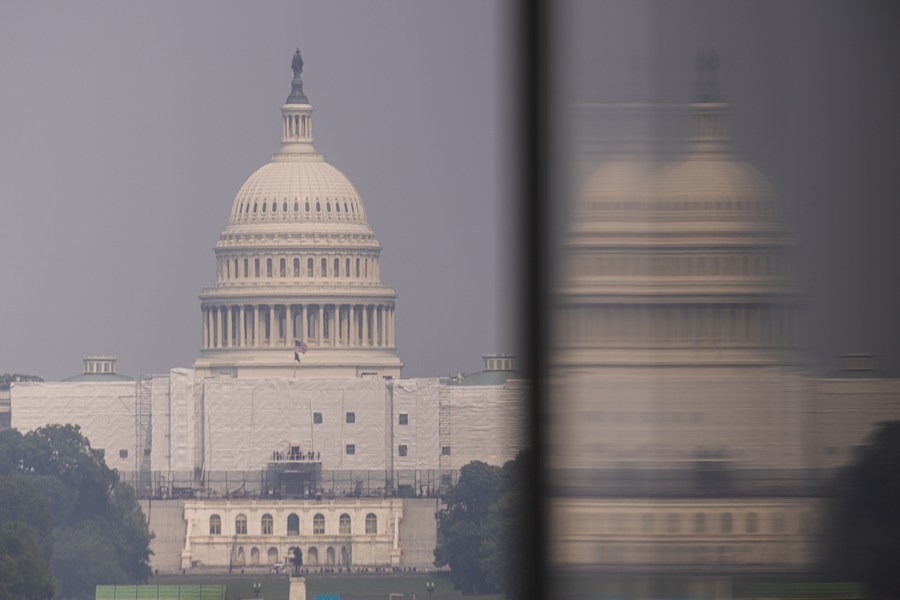New laws help to safeguard nation's security
By Cao Yin | China Daily | Updated: 2024-03-04 09:36

Legislative upgrades bolster ability to protect sovereignty, counter espionage
China's ability to safeguard national security and tackle external challenges is becoming stronger as it upgrades its legal toolkit for dealing with foreign affairs, experts said.
Lauding the formulation and modification of several laws last year, Huo Zhengxin, a law professor at the School of International Law at the China University of Political Science and Law, said: "Establishing a comprehensive system of foreign-related laws and regulations is the cornerstone of strengthening the rule of law in this regard."
In September, China passed a law on foreign state immunity that said Chinese courts, in principle, do not exercise jurisdiction over foreign countries and their assets. However, there were some exceptions, such as lawsuits arising from commercial activities or the performance of labor contracts. The law came into effect at the start of this year.
A law on foreign relations passed by the Standing Committee of the National People's Congress, the country's top legislature, in June stressed that China's sovereignty and territorial integrity must not be harmed. That law came into effect on July 1.
Earlier, Chinese legislators also revised the Counter-Espionage Law after finding that traditional and nontraditional security threats are intertwined and that various types of espionage and intelligence activities are becoming more complicated.
Huo said that amid a complicated global situation, the rule of law must be the basis for meeting challenges and preventing risks, with optimized legislative and judicial measures to resolutely protect national sovereignty, security, dignity and core interests.
"To reach the goal, legislation should come first," he added, calling for the expedited establishment of an open and transparent legal framework for foreign affairs to help oppose interference or long-arm jurisdiction by other nations.
Huang Jin, deputy head of the China Law Society, also emphasized the importance of promoting foreign-related lawmaking, saying "an enriched legislative toolkit, or a more complete legal system, will provide stronger support for enforcement and other legal activities".
The NPC Standing Committee also promulgated the Food Security Law last year to consolidate national security.
Under the law, a grain reserve system was established, and new technologies and devices were allowed to be widely applied to prevent natural and biological disasters.
In addition, from May to November, Chinese legislators inspected whether the Seed Law was being implemented effectively in areas including the provinces of Hainan, Sichuan and Hunan to stimulate the vitality of the agricultural industry.
Zhao Leji, chairman of the NPC Standing Committee, said in December that the inspection required a profound understanding of the implementation of the law, given that agriculture is one of China's fundamental core industries.
























